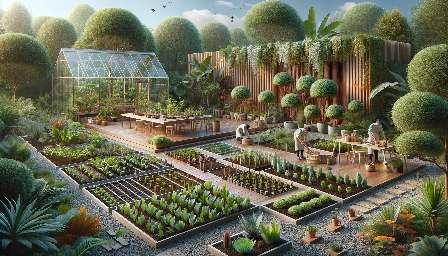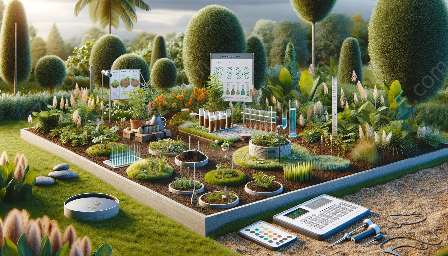Organic farming is a holistic and sustainable approach to agriculture that focuses on cultivating crops and raising livestock using natural techniques and resources, without the use of synthetic chemicals or genetically modified organisms. This method promotes biodiversity, soil health, and ecological balance, making it compatible with horticulture, agriculture, and forestry.
Benefits of Organic Farming
Organic farming offers numerous benefits, not only for the environment but also for human health and the economy. Some of the key advantages include:
- Environmental Sustainability: Organic farming minimizes the impact on the environment by promoting natural ecosystems, conserving water, and reducing pollution.
- Soil Health: Organic farming practices improve soil fertility, structure, and microbial diversity, enhancing the long-term productivity of the land.
- Biodiversity Conservation: By avoiding synthetic pesticides and fertilizers, organic farming supports diverse plant and animal species, contributing to the overall health of ecosystems.
- Public Health: Organic produce is free from harmful residues, offering consumers nutritious and safe food choices while reducing the risk of exposure to pesticides and toxins.
- Economic Viability: Organic farming can provide economic opportunities for small-scale and family-owned farms, creating sustainable livelihoods and contributing to local economies.
Organic Farming and Horticulture
Organic farming aligns closely with the principles of horticulture, as it emphasizes natural and environmentally friendly methods for growing fruits, vegetables, herbs, and ornamental plants. The integration of organic practices in horticulture enhances the beauty and productivity of gardens, landscapes, and urban green spaces while promoting sustainable and ecologically conscious gardening practices.
Organic Farming in Agriculture and Forestry
Within the broader context of agriculture and forestry, organic farming serves as a model for sustainable land management and resource conservation. By utilizing crop rotation, composting, and biological pest control, organic agriculture can reduce reliance on synthetic inputs and enhance the resilience of farming systems. Similarly, in forestry, organic practices promote sustainable timber production, agroforestry, and the preservation of natural habitats and wildlife.
The Future of Organic Farming
As the demand for sustainable and organic products continues to grow, the future of organic farming appears promising. Advancements in agroecology, regenerative agriculture, and organic certification systems are contributing to the expansion and innovation of organic farming practices worldwide. By embracing the principles of organic farming, individuals, communities, and nations can work towards a greener and more sustainable future for generations to come.



